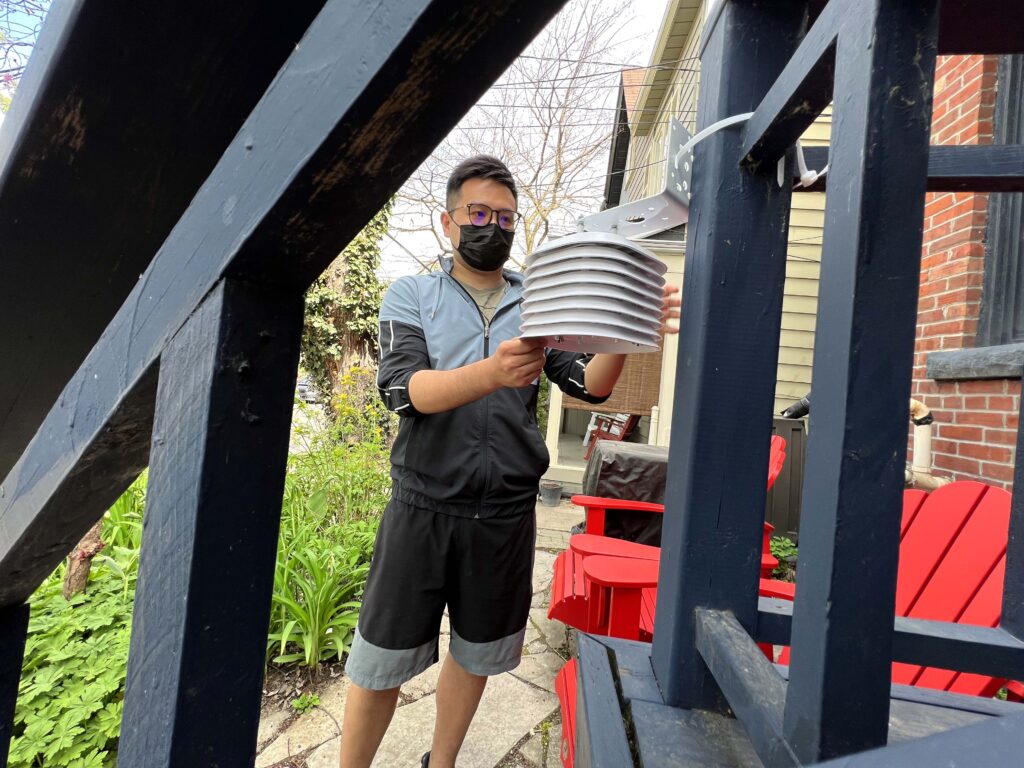
An ambitious project to install 200 sensors across Toronto is underway. The study is gathering data on temperature and humidity over several summers as part of a heat study funded by the Canadian Institutes of Health Research (CIHR).
The Transportation and Air Quality (TRAQ) research group, within the Department of Civil & Mineral Engineering (CivMin) at the University of Toronto, is collecting data on small-scale variations in ambient temperatures across Toronto. The project is headed by lead investigator Prof. Scott Weichenthal from McGill University in cooperation with CivMin’s Prof. Marianne Hatzopoulou.
Heat waves harm/kill people, particularly vulnerable populations, through a variety of pathways. These events are expected to become more frequent and more severe in the coming years. “Our team will build models to predict high-resolution variations in summer air temperature; there is a wide range of epidemiologists on the team who will use this information and link it to health outcomes to better understand the effects of heat on vulnerable urban populations” says Prof. Hatzopoulou.
The sensors are to be spread across the GTA, while covering a range of urban environments. The group hopes to not only monitor from residential sites, but also also install sensors in green spaces, such as parks or conservation areas. The team will also develop interactive web-based tools to communicate the findings with public health officials and community members.
By Phill Snel
SENSOR INSTALLATION SITES NEEDED
If you live in the GTA, have a front porch, backyard, or a first-floor balcony, please consider volunteering to host one of our sensors by filling out the following form: CIHR Heat Grant – Toronto 2022 sampling campaign (google.com). Where necessary, the team can install a pole for the monitor to perch atop of. No external power is required, so if you’ve not thought of getting involved in science, unless it was by a ten-foot pole, then this is your opportunity. If interested in participating, please fill out the form link above.
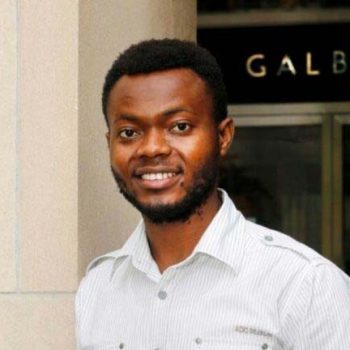
CivMin Prof. Ibrahim Ogunsanya has been elected as an Emerging Professional in the Materials technical section by The Metallurgy and Materials Society (MetSoc) of the Canadian Institute of Mining, Metallurgy and Petroleum (CIM).
According to MetSoc, the Emerging Professionals (EP) Development Program helps emerging professionals to engage with our Society, participate in Society activities, become better acquainted with each other and make important contacts with CIM and MetSoc leaders over a period of two years.
The Metallurgy and Materials Society Metallurgists have been active in CIM since its inception in 1898. In 1945, the Metallurgy Division was formed to reflect the group’s technical interests. Constituted as a Society in 1967, the Metallurgical Society (MetSoc) is one of the four societies and five divisions making up the Canadian Institute of Mining, Metallurgy, and Petroleum. In October of 2010, the Society adopted its new name The Metallurgy and Materials Society.
- Canada: CIM – Canadian Institute of Mining and Metallurgy & Petroleum
- U.S.: TMS – The Minerals, Metals, and Materials Society [the M is stacked as 3 M’s]
- U.K.: IOM3 Institute of Materials, Minerals, & Mining [the M is stacked as 3 M’s].
May 10, 2022 | Global News
The Structures Lab in Galbraith Building appears somewhat barren of late; crews have completed a massive cleanup, readying for major renovations.
The cleanup involved the relocation of 12m-long timber specimens (to be shipped out to another Canadian university for testing), relocation of hydraulic accumulator equipment, storage of various test equipment and fabrication jigs, disposal of general operational/construction waste (40 cubic yard bin), and disposal of spent test specimens which included two-ton concrete slabs and nine-ton concrete beams.
The next phase of construction begins this June. Demolition activities will include the removal of existing reinforced concrete strong floors (1.2 m thick), machine base (1.7 m thick), and foundation walls (150 mm thick). This demolition may take four or five weeks to complete. Afterwards, several months of major work remains to complete installation of new testing equipment.
Earlier this year, crews moved the Shell Element Tester and dismantled the 60-year-old Baldwin Press to prepare for this cleanup and subsequent demolition.
Stay tuned for more renovation updates over the coming months.
By David Goldberg
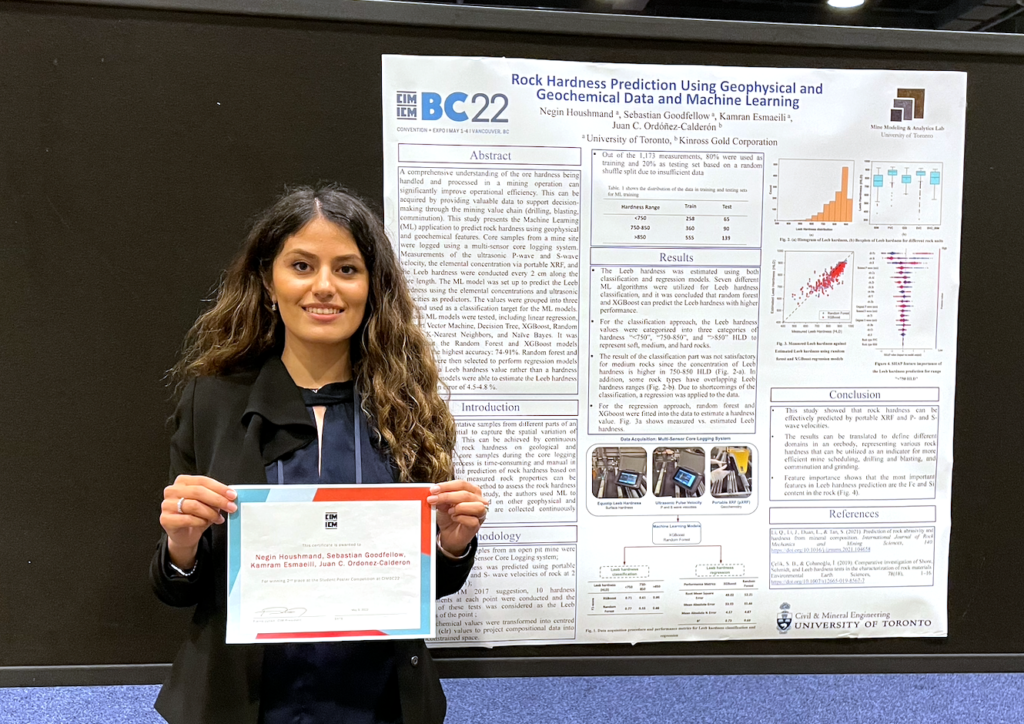
Negin Houshmand (CivE PhD candidate) received two awards at the Canadian Institute of Mining, Metallurgy and Petroleum (CIM) event, CIMBC22 Convention & Expo, in Vancouver.
Houshmand was awarded The Canadian Rock Engineering society award for Innovative Rock Engineering Research and second place in the Student Poster Competition at CIMBC22 for the poster titled Rock Hardness Prediction Using Geophysical and Geochemical Data and Machine Learning. Her co-supervisors are CivMin’s Prof. Kamran Esmaeili and Prof. Sebastian Goodfellow.
“There’s industry interest in the hardness prediction using our model in an app format,” Houshmand says, “I am so thrilled.”
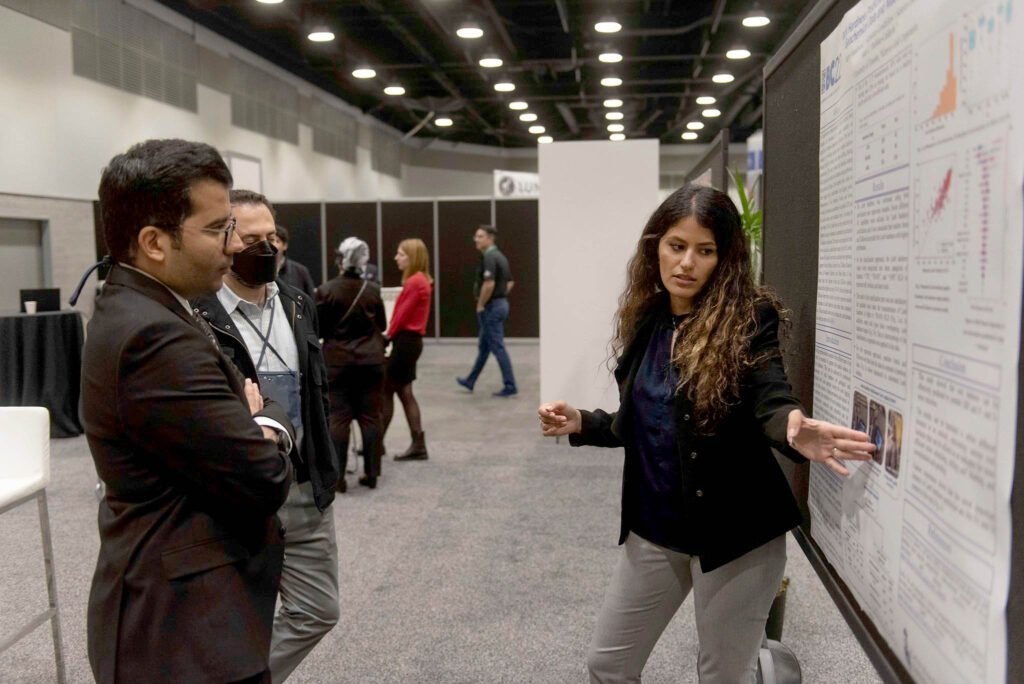
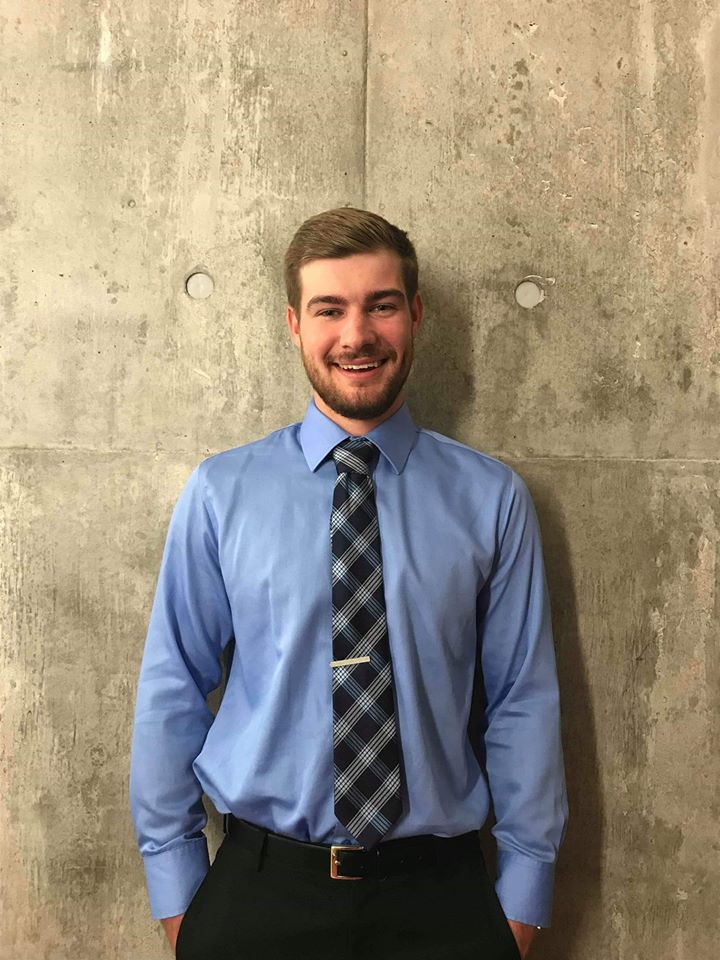
CivE MASc Candidate Brandon Boles has been chosen as the recipient of the 2022 Nick Bada American Concrete Institute Ontario Chapter Scholarship for Graduate Studies in the Field of Concrete Research.
Under the supervision of Prof. Shamim Sheikh, Boles says he plans to use the $5,000 USD scholarship towards the completion of his Masters studies to support his research on improving the resilience of reinforced concrete columns.
“This scholarship will help fund my research and allow me to make a positive impact on the design of reinforced concrete structures,” said Boles. “I believe this award will help me achieve a future career where I can help Ontario create more sustainable infrastructure.”
By David Goldberg
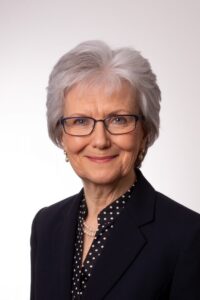
Hannah Schell, P.Eng., a sessional instructor for CivMin and long-time collaborator for concrete research projects with CivMin, has been named this year’s recipient of the Canadian Council of Independent Laboratories (CCIL) Leadership Award.
Schell is being honoured for her contributions to the development of engineering standards for concrete in highway infrastructure construction, rehabilitation, and testing, as well as her leadership in encouraging the partnership of industry stakeholders. She is retiring at the end of May, after a long career with the Ontario Ministry of Transportation (MTO).
For most of her time at MTO, Schell was Head of its Concrete Section in the Materials and Engineering Research Office (MERO) where she directed a group of expert engineers and technicians responsible for developing ministry-specific technical standards and specifications for public infrastructure in Ontario, troubleshooting concrete performance and testing issues, and incorporating new products and technologies in MTO construction and quality assurance operations
She has been a sessional instructor at CivMin for more than a decade, teaching CIV1252 Infrastructure Renewal, save for 2020 during the pandemic. Schell has also maintained a lengthy professional collaborative relationship with the Department. “When I was working, I was involved with research projects the Ministry of Transportation funded at the University of Toronto,” she says. “I worked with Professor Daman Panesar, Professor Doug Hooton , and Professor Karl Peterson on research projects for many years, all for MTO.”
“Given concrete durability is really my particular area for the testing, in terms of developing new test methods and making sure testing is accurate for construction materials specifically, it was an ideal match here at U of T,” she remarks.
Mindful of having made an impact throughout her career in this area, she says, “I guess having worked so long at MTO, and in the concrete field for so long, the opportunity to see research projects we worked on for in-house demonstrations, and field projects that we worked on come to fruition. Seeing the result of those research projects be incorporated into standards used for infrastructure throughout Ontario, that’s a real long-term highlight.”
“For more than 40 years, Ms. Schell has been a driving force in fostering consultation and collaboration between government and the private sector. This partnership approach has allowed us to work together in ensuring that we have the highest standards for concrete construction, materials, and testing methods, and that our highways are among the safest, most durable and best performing in the world,” said Trevor Gluck, P. Eng., President of CCIL “We are fortunate to have had her leadership and counsel.”
Schell is an avid traveler, visiting 60 countries so far with hopes to see more during her retirement. She is married, the mother of two children (a computer engineer and a photographer), and very recently became a first-time grandmother to a grandson.
Schell received the 2022 Leadership Award at CCIL’s Annual General Meeting, Monday, May 2, in Toronto.
By Phill Snel
About CCIL
CCIL represents the independent, private-sector laboratories in Canada. Operating more than 460 laboratory facilities across the country, members provide a broad array of testing services that help protect the health and safety of Canadians.

Analysis suggests that the City’s performance improved over the winter of 2022
Last January, as 55 centimetres of snow blanketed Toronto over a period of just 15 hours, the city’s snow-clearing fleet appeared to struggle to keep up.
But was it actually different than other storms, or did it just seem that way? For three students in Data Science for Engineers, a graduate-level course taught by Professor Sebastian Goodfellow (CivMin) it was the perfect case study for their new number-crunching skills.
“There was a lot of news coverage at the time saying the city had poorly responded,” says Katia Ossetchkina, a CivE MASc candidate. “We wanted to see if there was a way to analyze the movement and dispatch of snowplows and salt trucks across the city.”
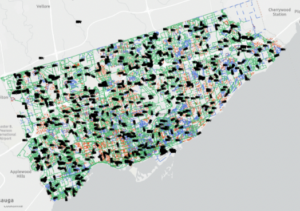
Real-time data on the locations of Toronto’s more than 800 snowplows and salt trucks is publicly available during the winter months: there is even a website that tracks this data on a map. But the team — which also included CivE MASc candidates Thomas de Boer and Lucas Herzog — soon realized that this alone wasn’t going to get them what they needed.
“There’s no historic storage,” says de Boer. “You can’t just download it as a file, so we had to create an algorithm that would ping that web server and download the data, store it on our computer, which we could then use to build up our own historic database and do our analysis off that.”
By the time the team had this technique up and running, it was too late to gather data from the January storm. But by analyzing data from subsequent storms and gleaning stats about the first one from the city and local news articles, the young researchers were able to verify that the City’s response did improve as the winter went on.
“We learned that Toronto had increased the number of plows on the road in February compared to January and the crews were quicker to reach certain benchmarks, such as the percentage of roads that had been plowed by a certain point during the storm,” says de Boer.
Herzog says that the team picked up other interesting trends as well.
“Of course, they plow the arterial roads first, but we saw that they would stop plowing around 6a.m., just before the morning commute,” says Herzog.
“And that’s where a lot of these Twitter complaints stemmed from,” adds de Boer. “People were wondering how they are supposed to get to an arterial road when the street outside their driveway is blocked by two feet of snow?”
Spurred on by observations like these, the team decided to take the project a step further by applying their data analysis to Tweets. The team used Twitter’s application programming interface to gather the comments those tweeting to Toronto 311 and the City of Toronto Winter Operations account. They were then able to perform what is known as “sentiment analysis,” measuring whether the words used in those tweets were positive or negative.
In this way, they could compare the public response to the January storm to another one that happened in February.
“We saw lots of negative tweets in January with people complaining about not being serviced yet, and that came with a lot of geographical information as well so we could see the hardest hit areas,” says Ossetchkina.
“Then we saw this reversing trend in February where people were saying ‘thank you ‘ and saying that the city was doing a good job in specific regions. It was a very interesting performance metric.”
The team says that this type of data analysis could help other engineers on future projects. They have made their historical database publicly available, and even crafted detailed instructions so that other teams can replicate their approach.
While they don’t have their final grade yet, Goodfellow says he was very impressed with their work.
“What I like about this project is that it’s entirely unique,” he says. “This is a new dataset that the students have made publicly available, and that can now be used by other engineers to investigate new questions or to hone their data science skills.”
“Even better than that, it’s a dataset from the city we all live in, which provided a special motivation for the students to truly go above and beyond.”
By David Goldberg
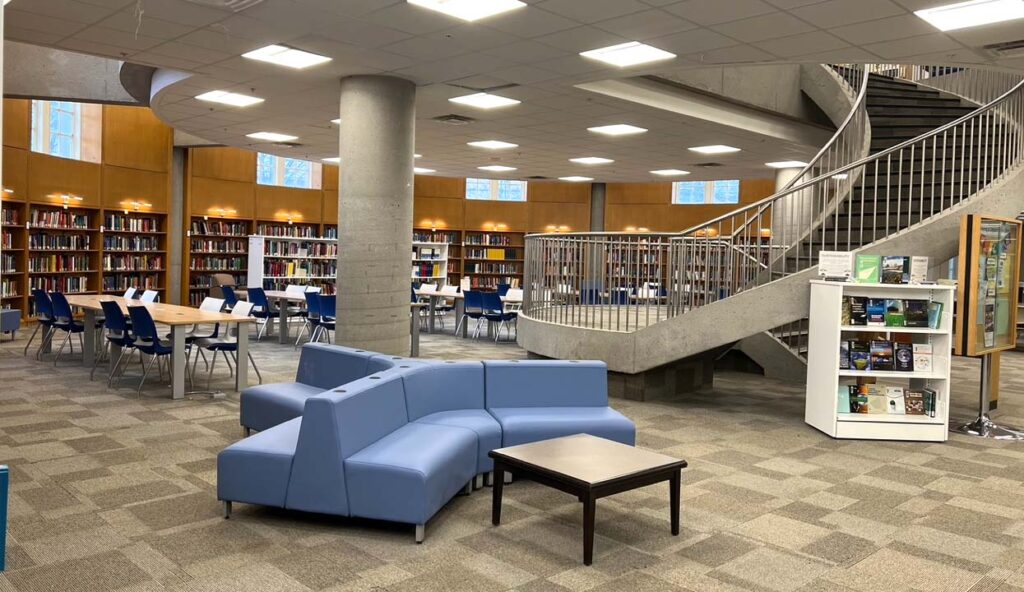
The Engineering and Computer Science Library (ECSL), located in the Sandford Fleming Building, has quietly undergone a bit of renovation. Though it was reopened without fanfare on January 10, after an 18-month closure, the changes are significant and extremely beneficial to its student users. A formal open house and opening ceremony is planned for May 10.
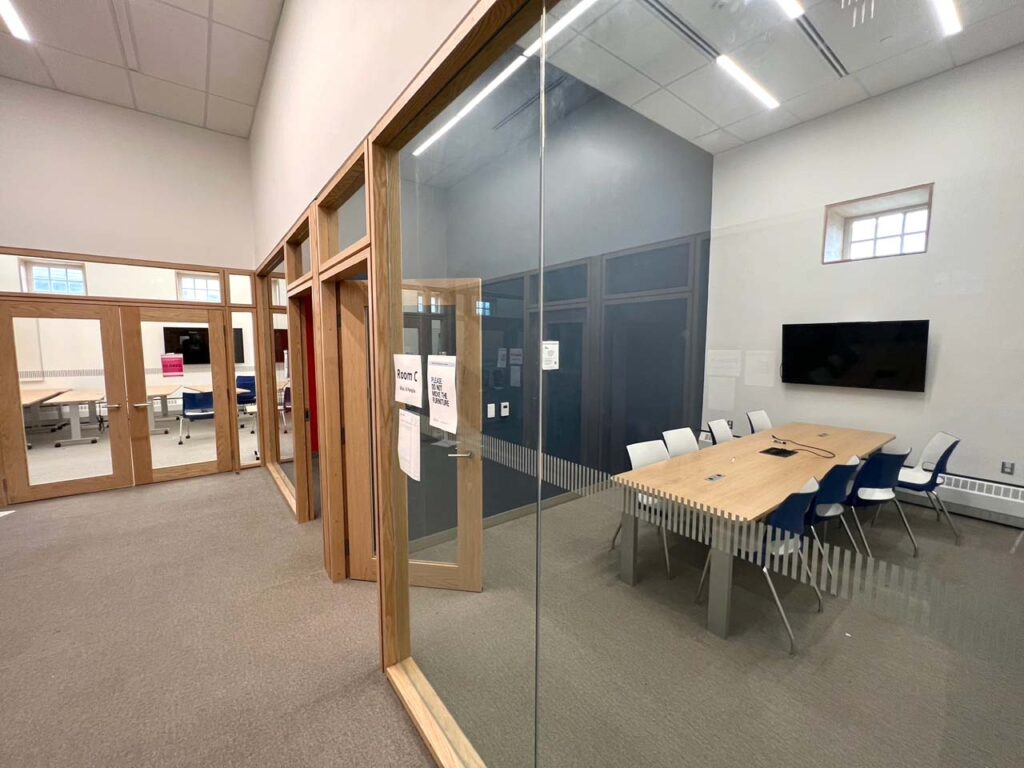
The removal of numerous shelves full of books and journals allowed for the transformation of spaces to offer more enclosed group study rooms. More than 15,000 items were removed to make way for the changes, representing some 50 per cent of the library’s entire collection.
The two-floor library retains its signature sweeping staircase as a centrepiece, but has dramatically changed floor layout on the first floor’s north end and the second floor’s south end. Not only are there more enclosed group study rooms, loaded with tech and connections, but an entire new classroom, many new individual study carrels, as well as an enlarged designated quiet study space.
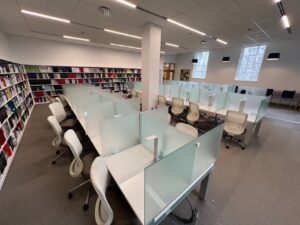
A favourite feature of the renovation is not the addition of any dedicated space or tech, but the new availability of natural light illuminating the interior. Previously, many windows were blocked by an interior mezzanine; the resulting source of natural light from 10 windows has added a lofty spaciousness to the library ambiance.
“We are thrilled with our renovation! It’s been really gratifying to see students enjoying our upgraded space during the last term,” remarks Angela Henshilwood, Head of the Engineering & Computer Science Library (ECSL).. The renovation has been many years in the making, but I think it beautifully incorporates the needs of our user groups – especially engineering students who need space for group work as well as quiet study space – and we’re excited to show it off to everyone during our open house on May 10.”
An open house is scheduled for Tuesday, May 10, with drop-ins encouraged to explore the new facilities. Formal remarks are to be made at 3:15 p.m., including remarks from Engineering Dean Christopher Yip. The Faculty of Applied Science and Engineering (FASE) c0-funded the project.
By the numbers:
- 18 months closed (since July 2020) – reopened January 10, 2022
- 15,000+ books and journals were transferred to our offsite preservation facility (Downsview) to make room for more student study space
- 50 per cent of the ECSL collection (in linear feet) that was transferred offsite
- 4 group study rooms added – all equipped with screens and white boards, and one room also includes teleconferencing equipment
- 1 classroom added, which can seat 30 students and is also equipped with screens for active learning
- 10 exposed windows– in the group study/classroom area, many windows were uncovered, which had previously been blocked because of the mezzanine that was there. They let in natural light and are a favourite feature of our renovation.
- 10 large group study tables on the main floor now added
- 140 seats added all together, lounge seating, and 30 computer workstations – this floor is mostly for group work and can be quite lively!
- 71 individual study carrels on the second floor, there are now more lounge furniture,
- 6 additional computer workstations
- 40 individual study carrels installed on the second floor in the south room, and have designated this room for silent study – before the renovation a quiet study spot was hard to find in our library!
- 6ACH+ a major upgrade to our HVAC system, so the number of air changes per hour (ACH) meets or exceeds the ASHRAE standard.
By Phill Snel
Take a tour around the Engineering and Computer Science Library (ECSL),
[slideshow_deploy id=’29469′]
May 3, 2022 | Construction Canada